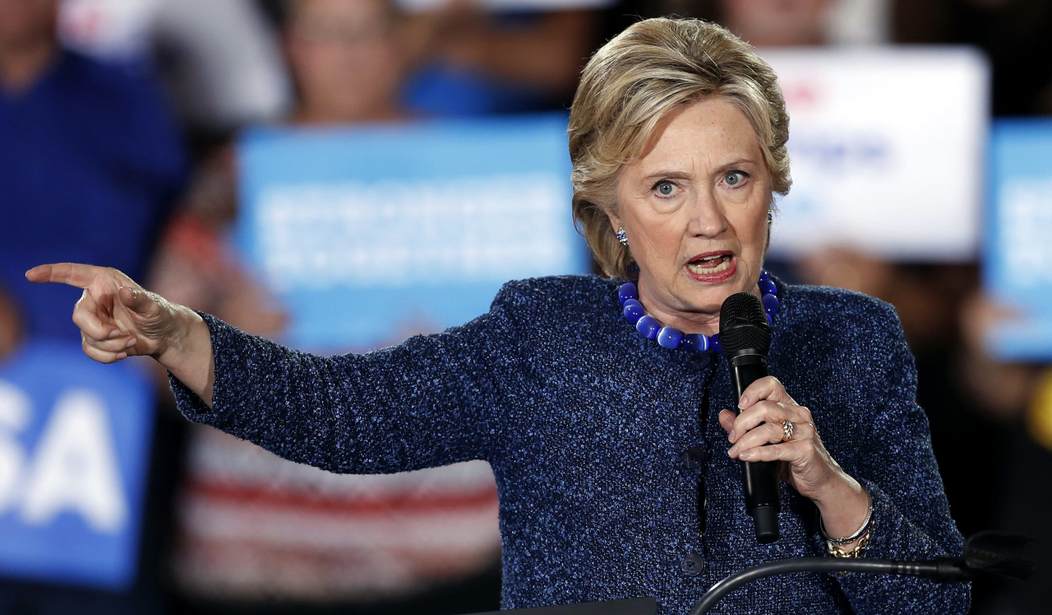On Day Five of the Wisconsin presidential election recount, as reported by Fox 6 News, a milestone has been reached. Over a million votes have now been recounted, and the recount effort is finished in six of the 72 Wisconsin counties. Donald Trump now has 20 fewer votes than he had at the close of the polls on November 8; Hillary Clinton also has exactly 20 fewer votes than she had at the close of the polls, so Trump’s margin of victory is literally unchanged. Gary Johnson (who came in third in the actual election) has gained 13 votes over what he had on November 8; and Jill Stein, who came in fourth and who petitioned for this recount, has gained a grand total of 27 votes.
That’s all there is to show for it.
Over the last six years, Wisconsin has been the venue for considerable political drama. There was first the breathtaking Republican victory of 2010: Prior to the November election, Democrats were in control of the statehouse and both houses of the state legislature, and in fact held every state-wide office save one (attorney general); five of Wisconsin’s eight representatives in Congress were Democrats. After the election, the statehouse and both houses of the legislature were in Republican control; all state-wide officeholders save three (secretary of state, one U.S. senator, and the supervisor of the Department of Public Instruction) were Republicans, and five of the eight congressmen were now Republicans.
This was followed by the tumultuous riots in the state capital, Madison, in the wake of the historic Act Ten legislation which limited the power of public-sector unions in various ways and permitted balancing of the state budget (a constitutional requirement); then a closely fought election to the state Supreme Court in 2011 (which led to a state-wide recount of the results, until it was finally certified that conservative Justice David Prosser had won); then the Walker recall election that fall.
In the wake of the Supreme Court recount, the state legislature in 2015 enacted certain changes to the recount law, such that, (1) in a local election in which 4,000 or fewer votes were cast, only an election in which the margin of victory was 10 votes or fewer would qualify for a recount at public expense; and (2) in an election involving more than 4,000 votes, the margin of victory which would permit a recount was lowered from .50% to .25% of the total votes.
Next Page: Scott Walker responds to the recount.
Now, in the wake of this latest fiasco, in which the contender who came in in fourth place has petitioned for a recount, the administration is considering additional changes to the law.
“It’s certainly something to look at,” Governor Scott Walker told reporters Friday morning after lighting the state Capitol Christmas tree. “I think a lot of people, no matter where they sit on the political spectrum, kind of scratch their head as to why someone would ask for a recount when they came in fourth. To me, it seems like a recount is most valuable if you think it was close and you want to challenge it to make sure that all the votes that were legitimate and legal were cast.”
Subsequent conversations with various state legislators have revealed some of the parameters being considered for amendment, in the wake of the 2016 election.
One measure being considered is the establishment of a minimum state threshold, such that it will be necessary for a candidate to have an actual statistical chance of winning the election to file for a recount. This will prevent an also-ran who came in fourth place from playing with the election results and the time-table for the smooth transition of power from one administration to the next.
Another measure being considered in the establishment of a minimum margin of victory. For instance, in the hotly contested (and just concluded) gubernatorial election in North Carolina, the number being watched for was 10,000, because in North Carolina an election decided by a margin of 10,000 votes or more can not trigger a recount. This would have the effect, again, of preventing someone who has no real chance of winning from wreaking havoc with the system. In American history, no recount has ever involved the switching of more than about 1300 votes from one candidate to another, so 10,000 votes would be a pretty insurmountable obstacle. In Wisconsin, Trump won by more than 22,000 votes.
Next Page: Wisconsin legislators filed a formal complaint with the FEC.
The only question in the minds of some state legislators is the role of the federal government in regulating national elections, such as the recently completed presidential contest; any changes to the state law will have to be implemented with a view toward federal prerogatives, to avoid any potential conflict.
In the meantime, the Wisconsin state GOP has filed a formal complaint with the Federal Election Commission, accusing the Clinton and Stein campaigns of illegal co-operation. That complaint is wending its way through the machinery, but will probably be decided too late to affect the actual recount efforts.
And in Pennsylvania, the Stein campaign, which earlier withdrew its suit in state court attempting to force a recount even though the deadline of November 21 was missed, has now filed in federal court trying to force the recount, and arguing that, as ordinary people with ordinary means, they can’t afford the million-dollar filing fee required of them under Pennsylvania law.
And the recount goes on…..









Join the conversation as a VIP Member